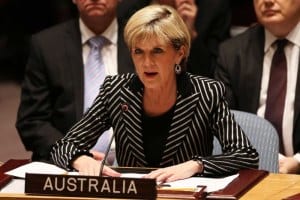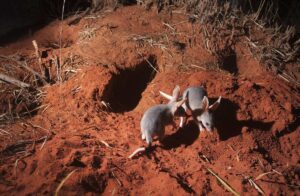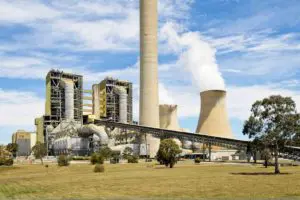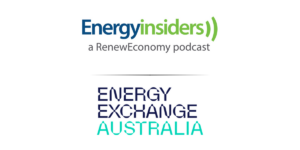LIMA: Coffee—according to a new UN economic study of climate risks in Latin America—is in trouble. Just a couple of degrees more warming could devastate the region’s coffee production, leaving poor farmers with no income, cafés with no business, and caffeine addicts with a global headache.
Dawn has broken in Lima, the coffee is, for now, on the stove, the aroma is irresistible, and Australia is showing signs of rousing from its slumber. As if in a dream, the Abbott Government had been oblivious to the diplomatic and economic consequences of their approach. They have started to open their eyes a whisker but still refuse to get out bed. We’ve all been there.
At a side event hosted by the Carbon Market Institute in Lima today, the Foreign Minister, Julie Bishop, did her level best to convince people that her Government knows what’s what when it comes to balancing growth and the environment. She began by declaring that the strength of a new international agreement ‘depended on the strength of climate policy at home’.
Oh. And the centrepiece of Australia’s policy, she said, is the Emissions Reduction Fund—a scheme most sober analysts think just won’t work. Not efficiently, anyway, and not without a lot more money.
The ERF, Bishop explained, ‘creates a market’ by issuing contracts to companies that demonstrate least-cost mitigation and is most certainly not a ‘soft grants programme’, as some suggest.
The Foreign Minister said that the lessons learnt in the Carbon Farming Initiative would be employed across the economy. Carbon capture and storage featured prominently in her list of potential projects, as did improved energy efficiency in homes and offices.
Not to suggest such efforts are completely without merit (CCS is tricky, to say the least), but unless the ERF can drive large-scale investment in renewables, it is toying about at the edges of the problem, surely? And this is precisely what the UN Secretary-General, Ban Ki-moon, has politely asked countries not to do.
‘This is not a time for tinkering—it is a time for transformation,’ Ban said yesterday.
Given Robb’s disbelief that fossil fuels could or should be phased out by 2050—a goal now in the draft text—one suspects transformation is not on the Government’s agenda.
The Government has budgeted $2.55 billion for the ERF, which, said Ms Bishop, was as if the United States had committed $25 billion, and hence nothing to sneeze at. Fair enough, but kind of beside the point, no? Unlike the previous Government’s emissions trading scheme, the ERF raises no revenue and hence makes much less economic sense.
The sense here in Lima is that Australia knows it is increasingly isolated in the negotiations. And while it isn’t being as obstructive as it could be, it is hardly making things easier. Australia’s tactic seems to be to stick its head above the parapet long enough to keep the text to the lowest common denominator and duck back down again to avoid any more fire.
Even so, Bishop did indicate the Government was willing to think again on some things. Earlier, Australia was insisting on a legally binding agreement in Paris, and Bishop said that while she, personally, couldn’t see why a new treaty shouldn’t have the force of law, she ‘understood’ some countries might baulk at the idea.
‘I suspect we’ll come down on the side of ensuring as many countries as possible sign up to a Paris agreement,’ Ms Bishop said, adding she wanted to see ‘more people with their feet on the sticky paper’.
Later in the session, Trade Minister Andrew Robb joined Bishop and the two were at pains to stress how seriously Australia is taking the talks, pointing out there are now two senior ministers in attendance, i.e. them.
You do want senior ministers at the COP, it’s true, so this is a welcome change. However, it’s really hard to ignore the fact that few in Cabinet (least of all the PM and Robb) seemed to think COP20 was anything more than a minor irritant. That was until half a million people marched in New York City and President Obama made damn sure climate was on the G20 agenda.
In between, Obama and President Xi shook hands. A sign, Al Gore said today, of history in the making. ‘I know these men,’ he said, ending a compelling stock-take of the problem, ‘and this is the most positive movement on climate change I have seen in forty years.’
In her address to the conference today, Bishop showed that criticism of Australia—some of it open, some behind closed doors—had struck a nerve.
‘We are taking action,’ said Bishop, ‘we are delivering on our commitments and we are more than playing our part. This is what Australia does. That’s who we are. A reliable partner. A good international citizen.’
All of which is an admission that Australia is playing diplomatic catch-up in the climate arena, but running the bare minimum speed.
When asked whether Australia favoured global targets to 2025 or 2030,
Robb jumped in, saying that, ‘in seeing this thing through to Paris, we’re seeking to establish some credibility to the targets’. He laboured on what he said was the ‘sad history’ of climate talks, making much of the debacle in Copenhagen in 2009. Only after 2025, he said, should the world possibly think about long-term targets. Essentially, the nations are not competent to make achievable, ambitious long-term commitments, so they really shouldn’t bother just yet.
It’s understood that, later in the evening, the Ministers joined Peru’s President Humala for a private audience at the Palace in Lima’s historic centre. The President had had a good day: he, alongside the Presidents of Mexico, Chile, and Colombia, had declared a new ‘Pacific Alliance’ to tackle climate change. Considering how these countries often bicker, especially Chile and Peru, that’s no mean diplomatic feat.
Meanwhile, on the streets of Lima, around 15,000 people marched— peacefully, colourfully, hopefully demanding that their leaders here assembled actually deal with the problem.









